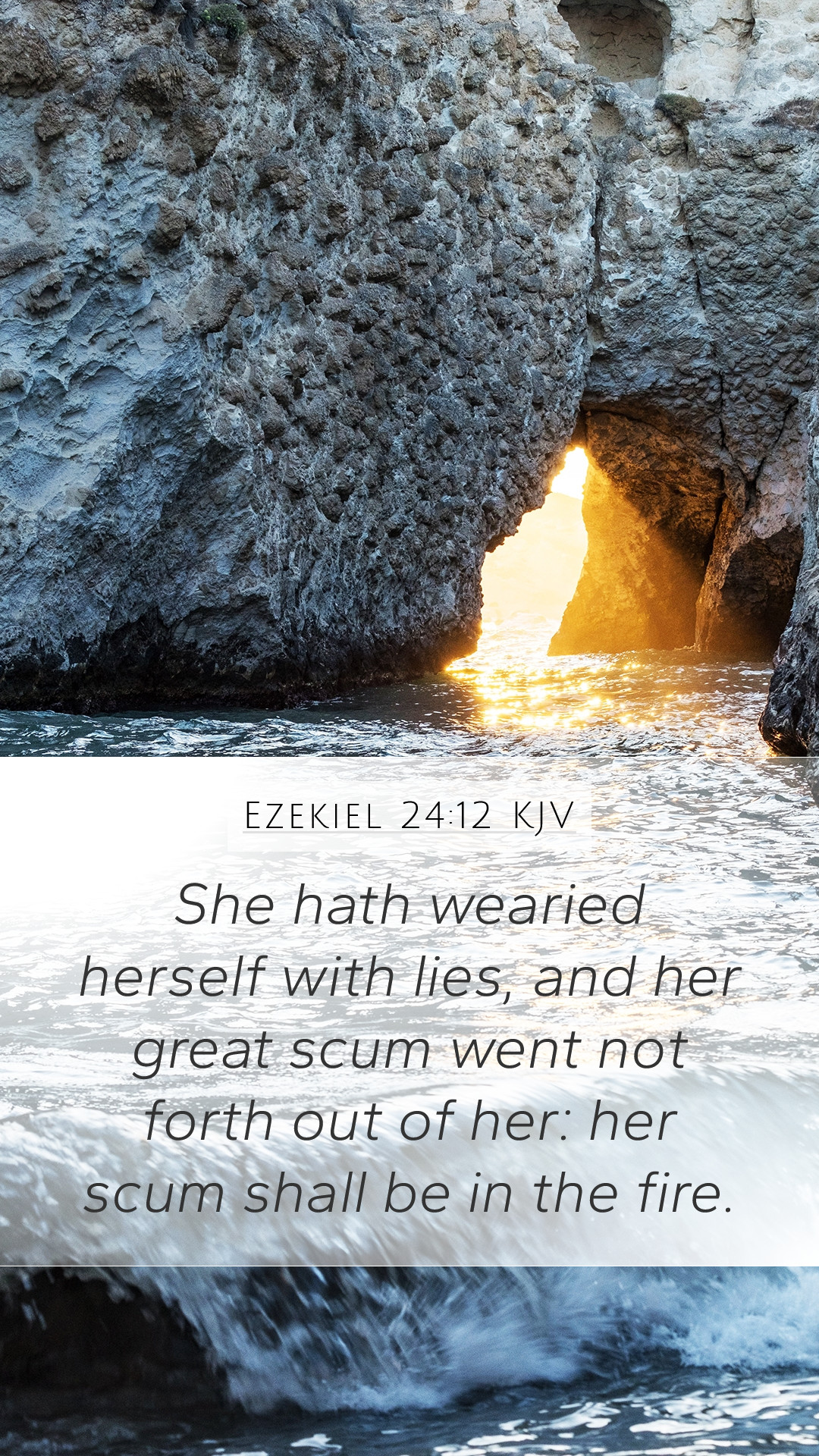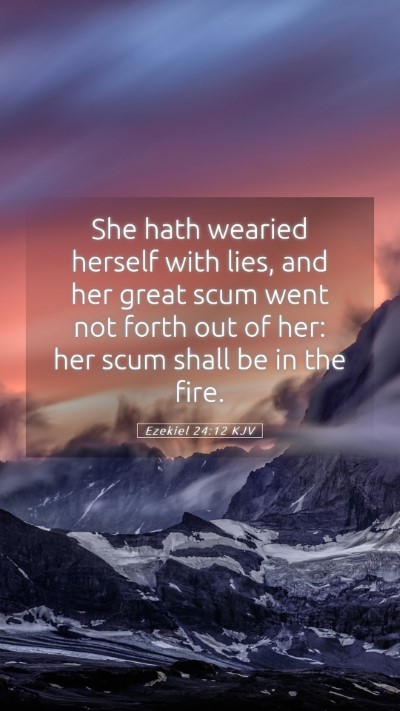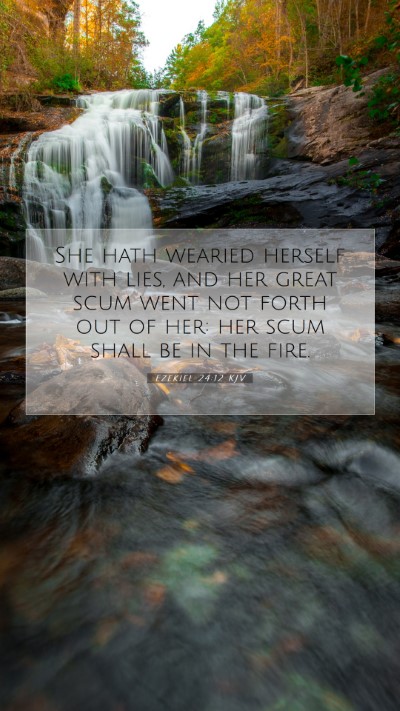Understanding Ezekiel 24:12
Ezekiel 24:12 states: "She hath wearied herself with lies, and her great scum went not forth out of her: her scum shall be in the fire." This verse presents a powerful imagery of Jerusalem and its iniquities. In this analysis, we explore the meanings and interpretations provided by respected public domain commentaries, including those by Matthew Henry, Albert Barnes, and Adam Clarke.
Bible Verse Meaning
This verse conveys a deep sense of judgment against Jerusalem, represented through the metaphor of a cooking pot. The "scum" refers to impurities and corrupt practices that have clung to the people. The fire symbolizes God's judgment, suggesting that the purification will be severe and inevitable.
Commentary Insights
- Matthew Henry's Commentary: Henry emphasizes that the city, like a pot, has retained much of its filth due to persistent sin. The "lies" refer to the falsehoods propagated by the people, culminating in a refusal to return to God despite His continual calls for repentance.
- Albert Barnes' Notes: Barnes notes that the "great scum" symbolizes not just individual sins but the collective iniquity of the nation. The verse signifies a coming judgment that is unavoidable, as the impurities must be removed through God's refining fire.
- Adam Clarke's Commentary: Clarke addresses the imagery of the pot, suggesting that just as impurities rise to the surface to be skimmed off during boiling, so too will the judgment of God reveal the deep-seated corruption among His people. The "fire" is an essential aspect of purification, indicating that suffering may be necessary for cleansing.
Scripture Analysis
In performing a detailed analysis of Ezekiel 24:12, we recognize how it reflects various biblical themes such as judgment, purification, and the seriousness of sin. The passage serves as a reminder of the consequences of persistent wrongdoing and the need for genuine repentance.
Significance of the Imagery
The imagery in Ezekiel 24:12 offers profound insights into the spiritual state of Jerusalem. The scum represents all that is morally and spiritually corrupt, while the fire speaks to God's corrective and purifying actions. This duality called the people of Jerusalem to recognize their state and seek restoration.
Cross References
- Ezekiel 22:18: "Son of man, the house of Israel is to Me become dross..." This verse shares a similar theme of the people being compared to worthless metal, emphasizing the need for purification.
- Jeremiah 6:29-30: "The bellows are burned, the lead is consumed of the fire; the founder melteth in vain..." Here, the imagery of metalwork illustrates the extent of corruption within the people.
- Malachi 3:2-3: "For he is like a refiner's fire..." This passage speaks to the purpose of fire as a means of refining and purifying God's people.
Application of the Verse
Ezekiel 24:12 not only represents a historical judgment but also serves as a lesson for contemporary readers. It encourages believers to reflect on their own lives, examining areas of impurity and seeking the cleansing power of God.
Making It Relevant
In today's context, individuals and communities are called to recognize their shortcomings. The purification process, though painful, can lead to significant spiritual renewal. This verse invites us to engage in self-examination, fostering genuine repentance and growth in faith.
Conclusion
In conclusion, Ezekiel 24:12 offers a vivid reminder of the seriousness of sin and the necessity for God's purification through judgment. By understanding the implications of this verse through the insights of various commentaries, believers gain essential tools for biblical interpretation, enriching their Bible study experience.
For further exploration of similar themes, consider engaging with Bible study groups, utilizing online Bible study resources, and accessing biblical commentaries for deeper insights into related scriptures.


